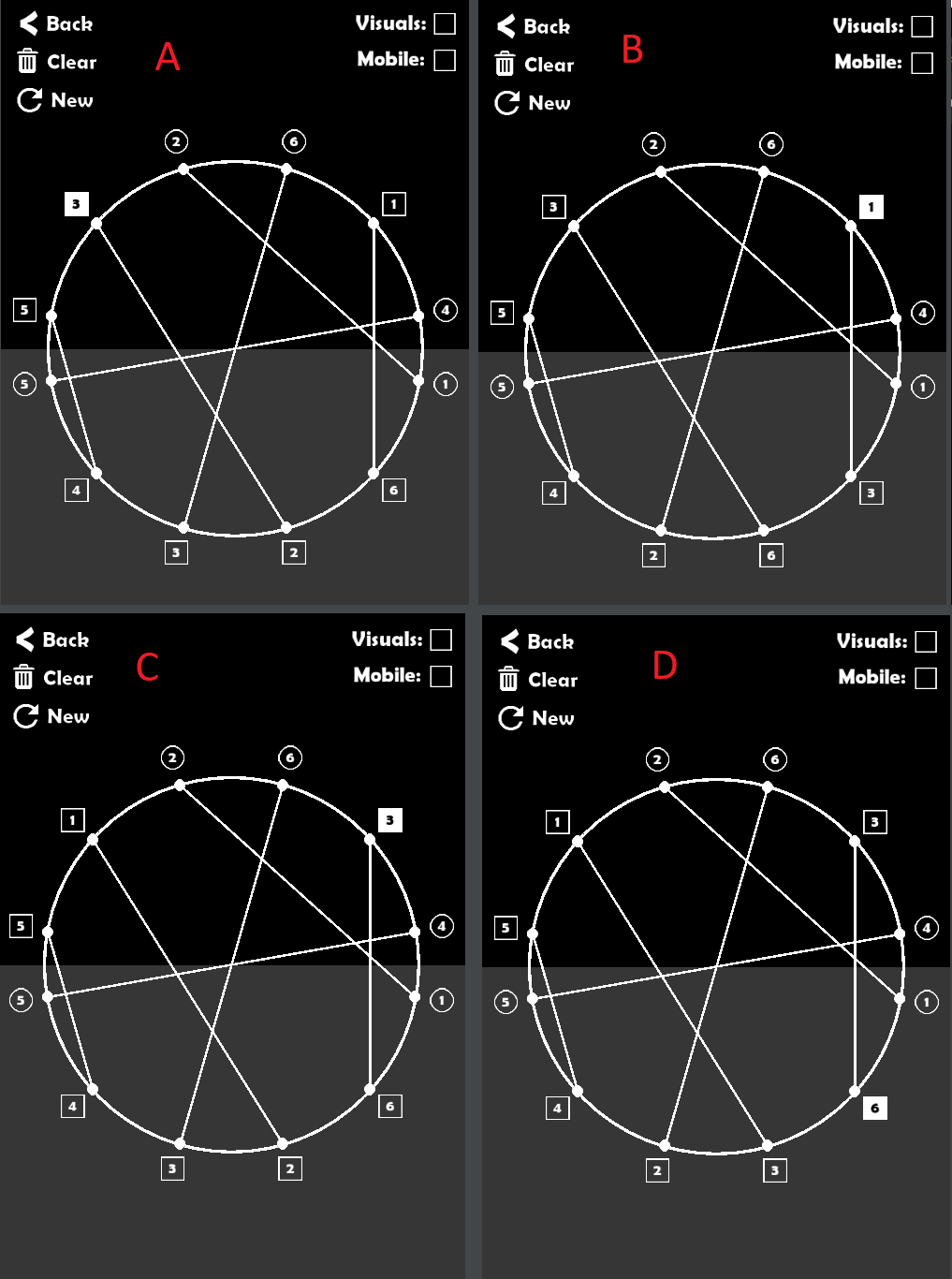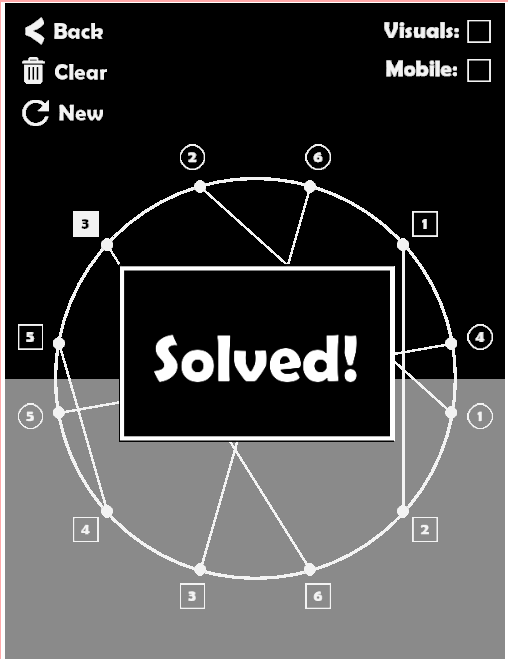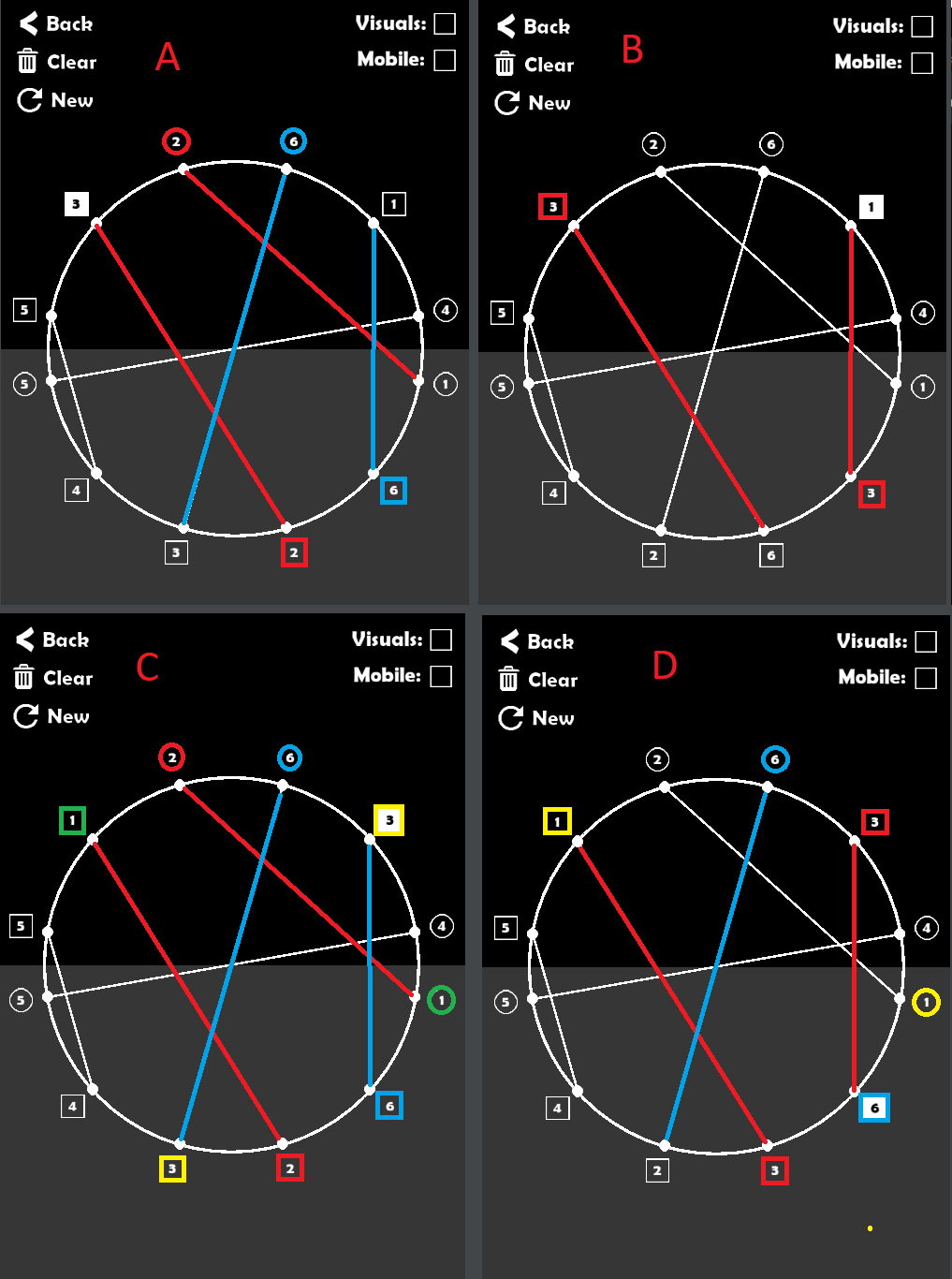Hi,
Does this logic already exist in a game or did you create everything?
I love Sudoku so I think this idea is great!
But for me there should be additionals rules.
When I played a size 4 it was really easy, but in size 6 it started to be unresolvable.
With the current rules I have found cases where several solutions are possible. This is not the case in a Sudoku where only one solution exists.

Here, if I'm not mistaken, the 5 and 4 on left are good, but after that there are not indices for find the next numbers.
All these solutions follow the rules but are not good?
Why?
Here is the correct solution (below) and I don't know why.

Maybe a new rule could render only one solution good.
For example, the numbers on the same "column" cannot be the same. In this case in the first picture, the B would be wrong because the numbers 2 and 6 are on the same column. the same for the D with the number 2.
Unfortunately this slight problem makes the experience less replayable and more frustrating.



